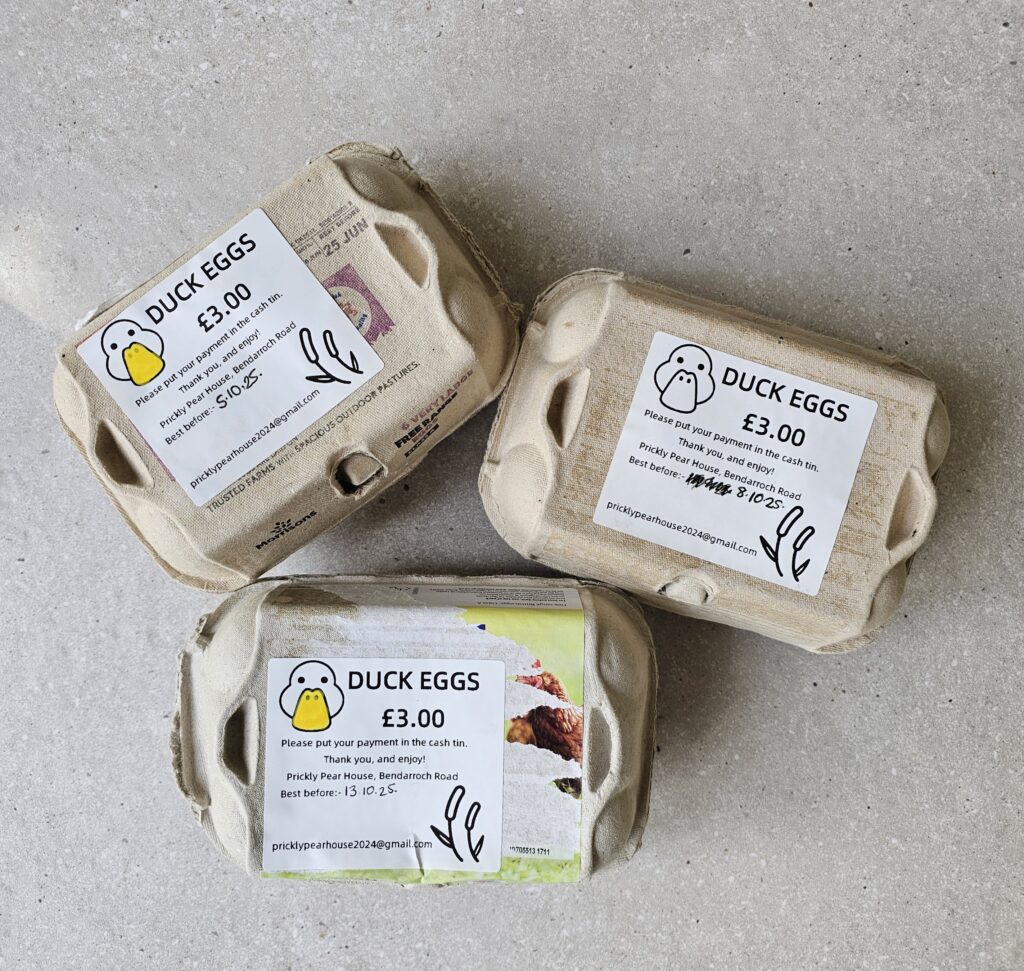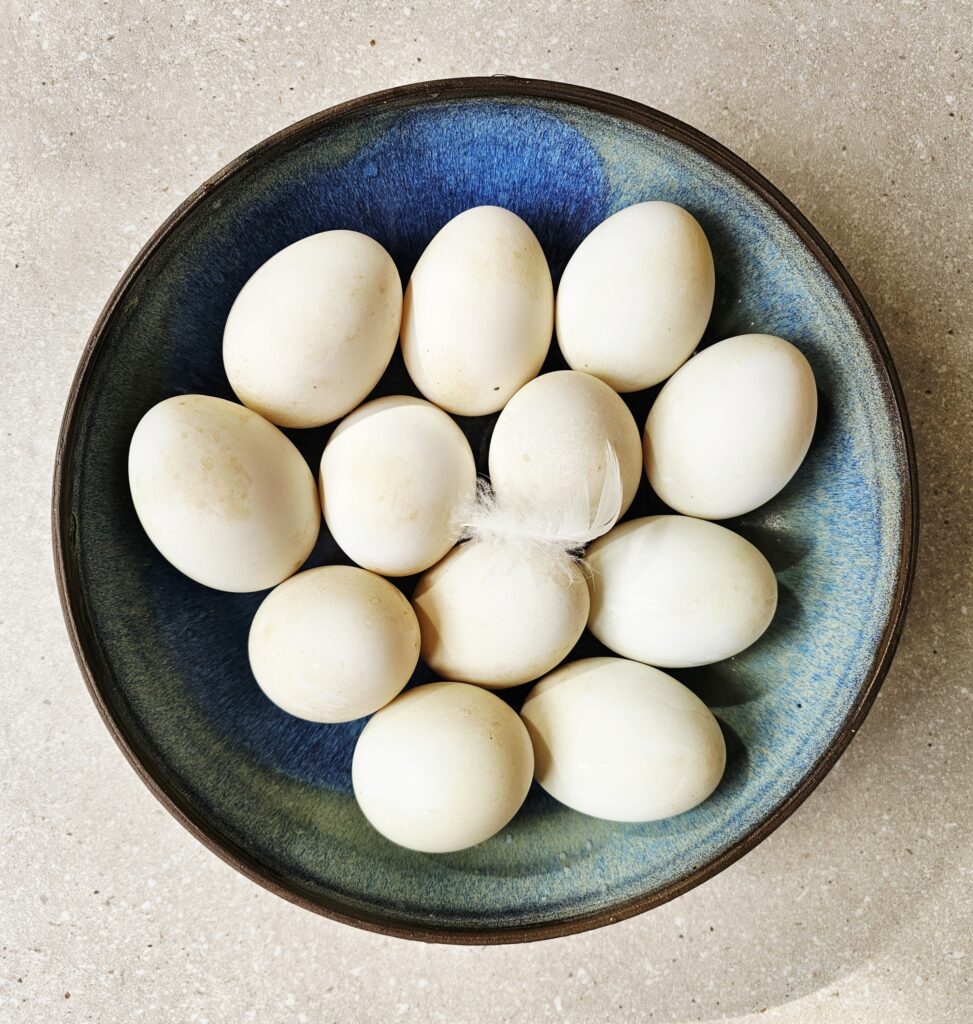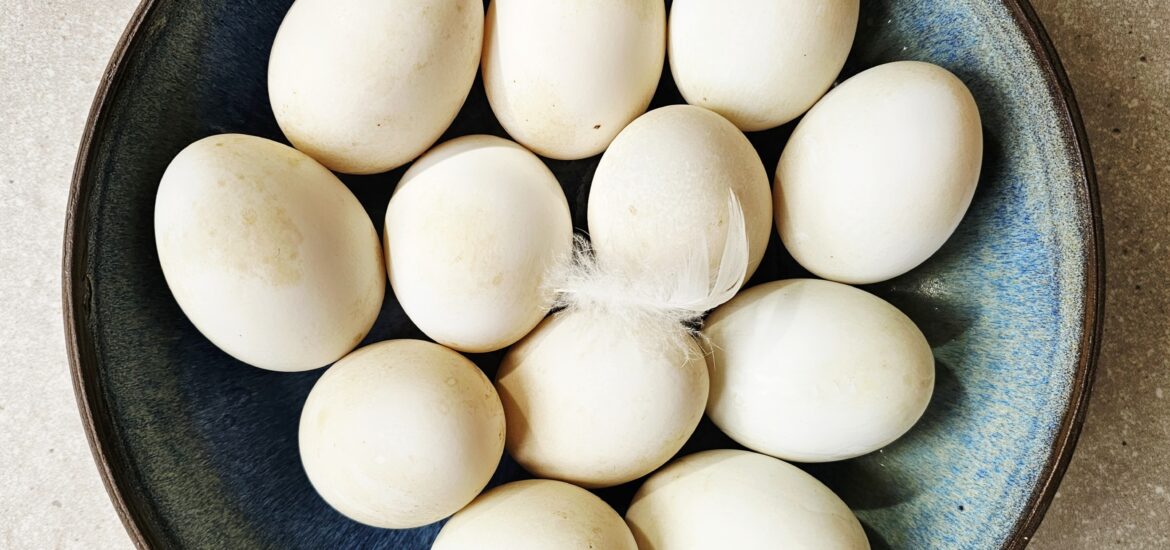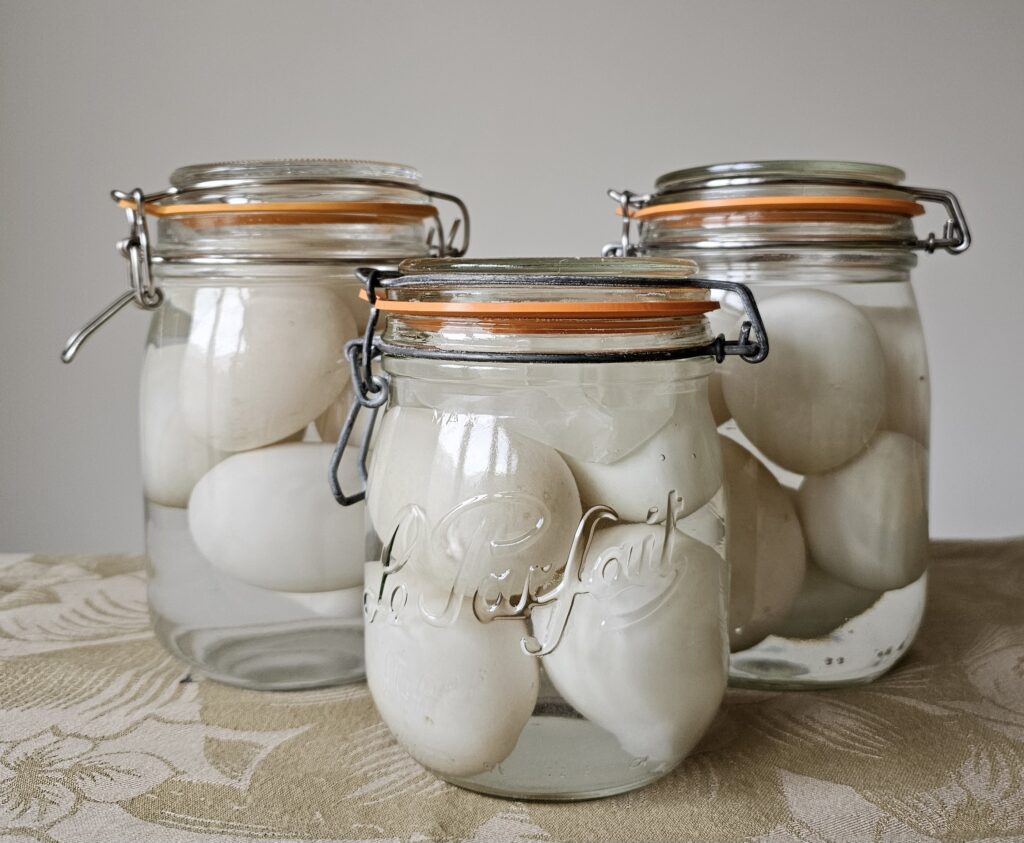
I am reading a brilliant book at the moment entitled Four Thousand Weeks. The premise is that, if we live to 80 years of age, we would have covered 4,000 weeks in time. It’s not that we should count every week, but make every week count.
I never lie about my age. Next year I will turn 60 and there is not a day that passes by when I am not thankful for having reached this far.
When I look back to my oldest posts on this blog, I realise there are some things I have not made as regularly as I would have liked. Spotting some fresh duck eggs last weekend reminded me of making salted duck eggs. Like pickles, this is a make-ahead item that you stash away and retrieve when you need something ready-made to liven up another dish.
The duck eggs came in various sizes, ranging from 65 g per egg to a whopping 120 g!
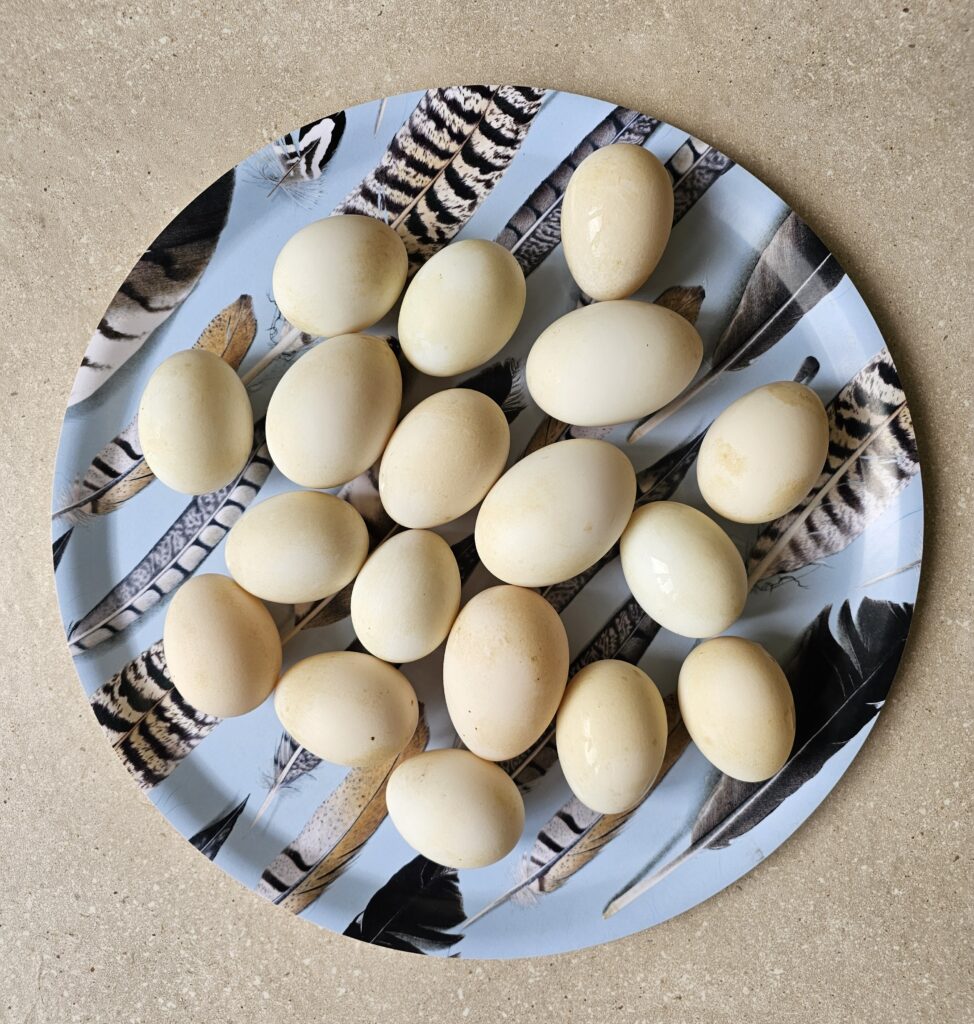
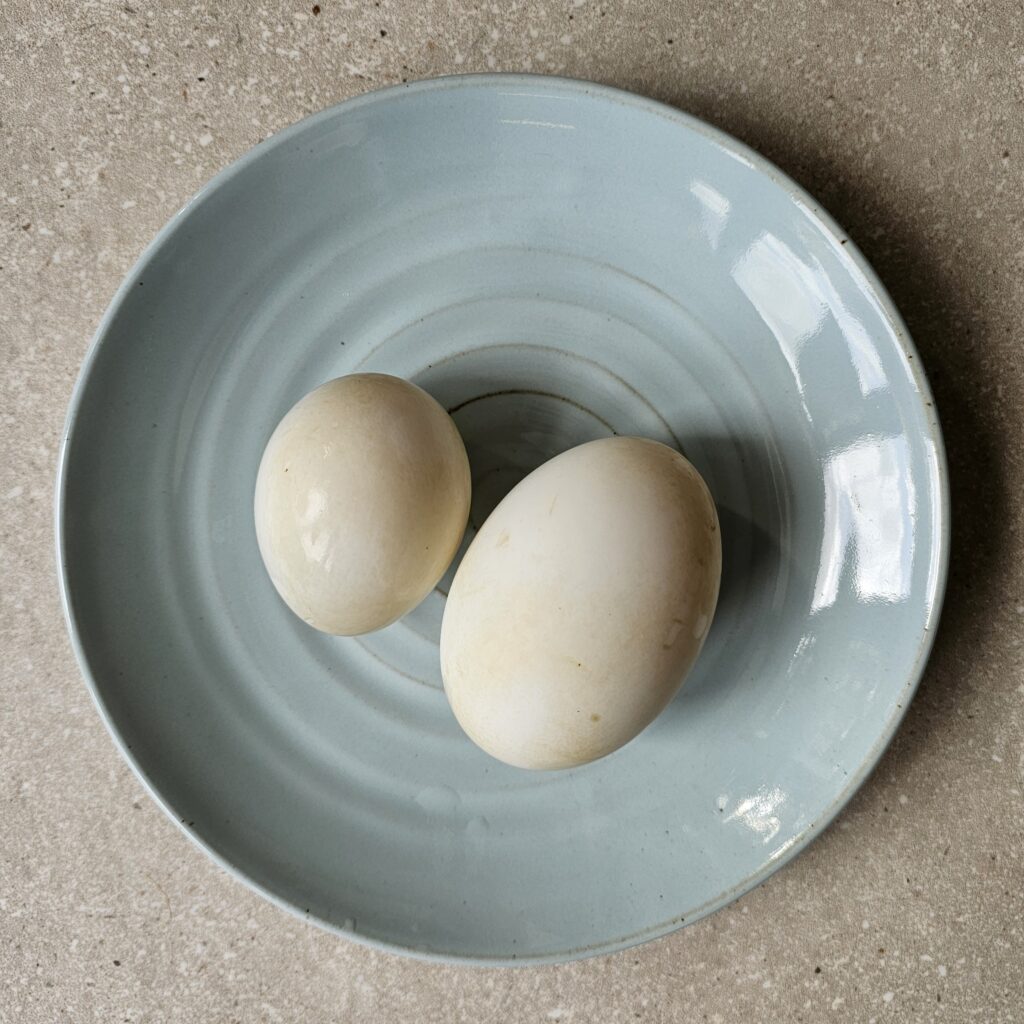
To accommodate the duck eggs and brine I had to turf out three batches of pickles (sorry!) from their jars and put into smaller bottles. The jars were first hand-washed then put in the dishwasher for further washing and drying thus sterilising it.
I did not add any aromatics to the brine and kept it simple. Once the eggs are brining it is a matter of waiting, a month minimum and up to two months. This is a very good project for cheering up the colder days and longer nights fast approaching.
Since some of the eggs were quite large I have adapted the original recipe from Yan-kit So. I imagine the eggs she used were uniform in size, perhaps 75 g – 80 g each. Duck eggs are always larger than hen’s eggs in any case.
For the Eggs:
400 g sea salt
1.6 litres boiling water
18 duck eggs, weight upwards of 75 g each
You will also need 3 x 2-litre glass preserving jars.
How to Make:
Put the salt in a large plastic or glass jug. Pour in the boiling water to dissolve the salt, giving it a big stir. Leave to cool completely.
Wash the eggs, brushing with a fine brush so that the pores are open for better absorption of the brine later. Wipe dry.
Put the eggs into one or more large glass jars. Make sure there are no cracks in any of the eggs, otherwise the whole lot may be spoiled.
Add the cold brine. Some eggs will float to the surface. I crushed a piece of baking parchment and placed this on top of the jar, pushing down the eggs and submerging them in the brine. Fasten the lid of the jar.
Store the eggs in the fridge for a minimum of 28 days at the end of which take one out to try. Use a sterilised metal spoon to remove the eggs so as not to contaminate the brine.
When cracked, the egg white should be cloudy and the yolk coagulated. When hard-boiled, the egg white should be very salty, and the egg-yolk golden and oily.
If they are not ready, leave them for 1 or 2 more weeks.
I was originally intending to boil the salted duck eggs to eat with congee. That’s how I remember my dad eating them. Another recipe would be to mix the raw egg white with minced pork, adding some grated ginger and finely sliced spring onion greens. Make a dip in the middle and place the egg yolk in this. Steam the whole dish until cooked. Served with rice, this is a home-style dish that is simple and comforting at any time.
Label the bottle with the date the eggs were brined
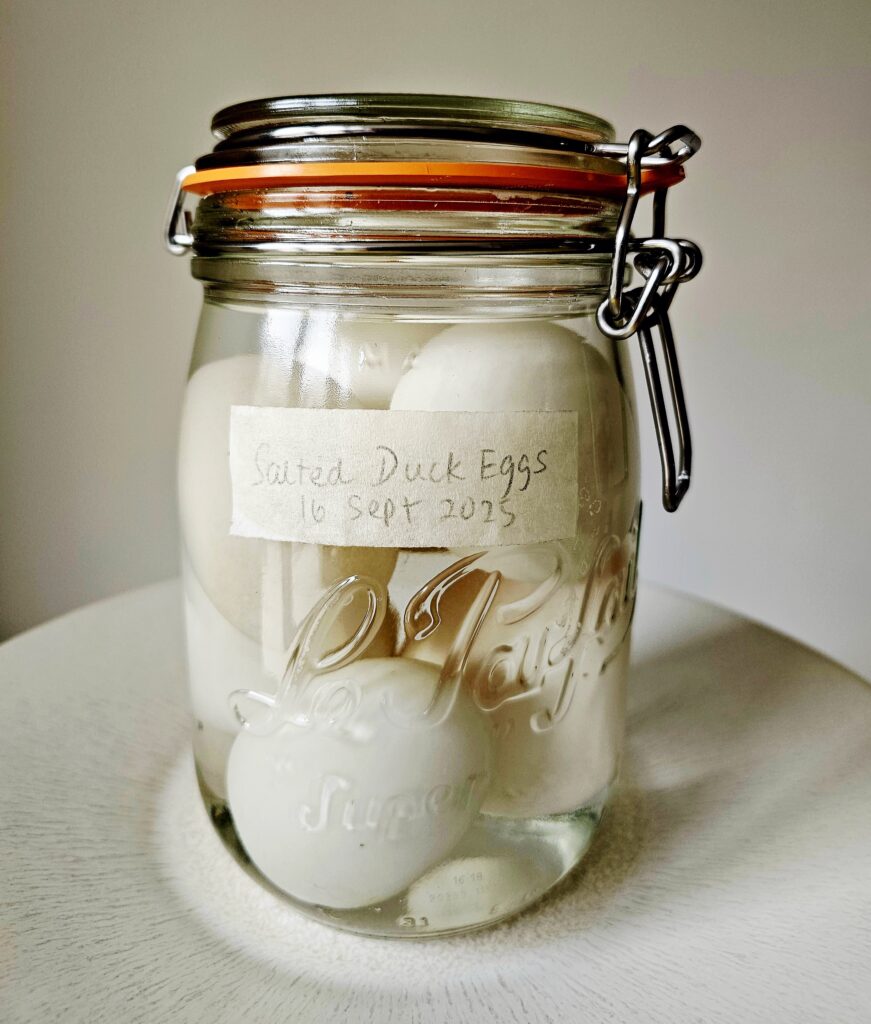
The Book:
Four Thousand Weeks: Embrace your limits. Change your life. Make your four thousand weeks count, by Oliver Burkemann, published by Vintage, ISBN 978-1784704001 (paperback) and 978-0735232464 (hardcover).
The Egg Vendor:
If you live anywhere near Ottery St Mary (East Devon) then you can get fresh hen and duck eggs from a stall along the top end of Bendarroch Road (Prickly Pear House). Currently the price is £1.80 for half a dozen hen eggs, and £3 for half a dozen duck eggs. It has just occurred to me that most countries might not use ‘a dozen’ so presumably they sell eggs in boxes of 10 or maybe 15. I should check this out next time I travel to a foreign country.
